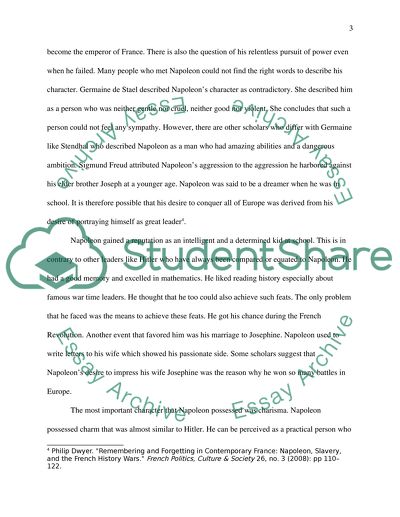Cite this document
(“Napoleon Essay Example | Topics and Well Written Essays - 1750 words”, n.d.)
Retrieved from https://studentshare.org/history/1636247-napoleon
Retrieved from https://studentshare.org/history/1636247-napoleon
(Napoleon Essay Example | Topics and Well Written Essays - 1750 Words)
https://studentshare.org/history/1636247-napoleon.
https://studentshare.org/history/1636247-napoleon.
“Napoleon Essay Example | Topics and Well Written Essays - 1750 Words”, n.d. https://studentshare.org/history/1636247-napoleon.


